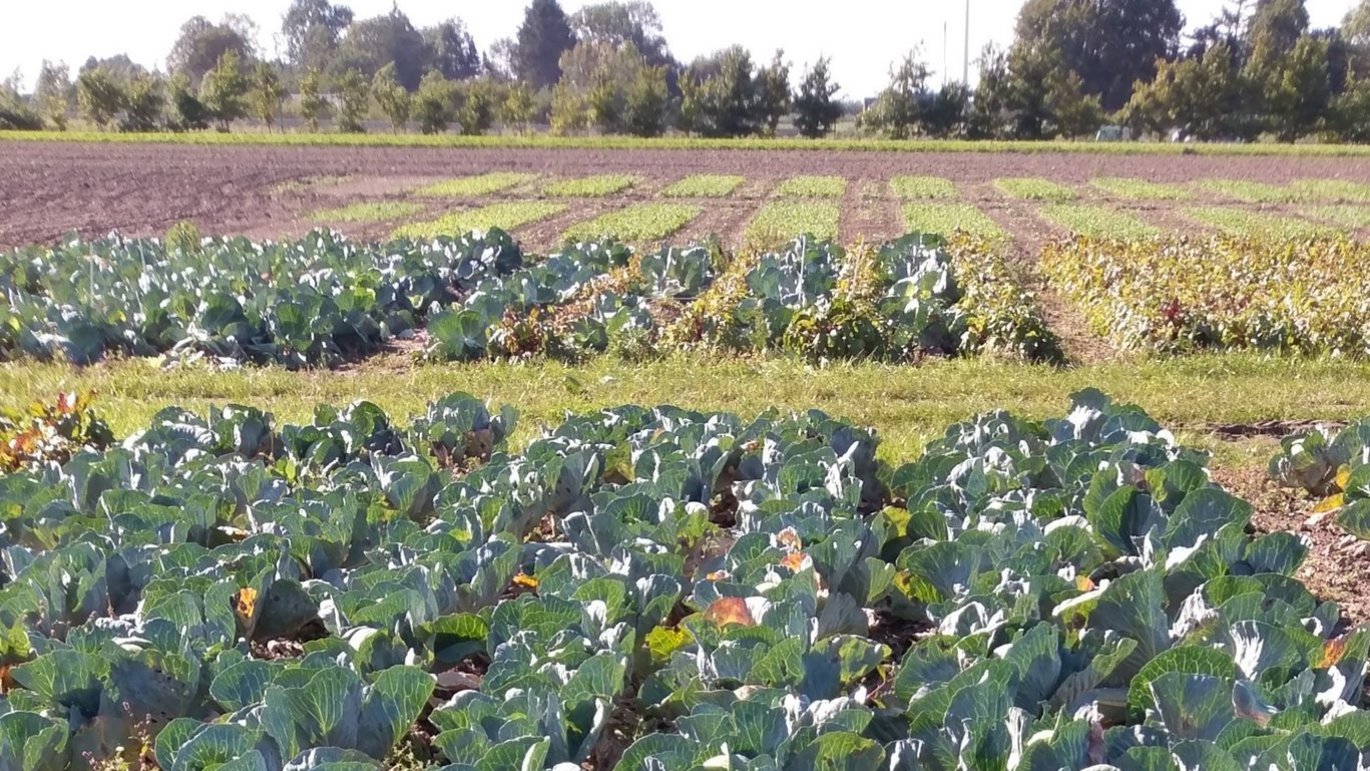Soil fertility can be strengthened via compost and plant-based fertilisers
The CORE Organic project SureVeg has shown that manure can be replaced by a combination of compost and plant-based fertilizers without compromising yield, which can increase soil fertility in the production of vegetables.

The demand for organic vegetables is increasing, but requires a lot of nutrients, and at the same time vegetable production is hard on the soil due to intensive tillage and mechanical weed control, which affects the life of the soil. In addition, the industry wants to phase out conventional fertilizer sources from organic production. There is therefore a need to investigate whether pig manure, with its high ammonium content and low content of organic matter, is the most optimal form of fertilization when the soil's fertility needs to taking into consideration. The CORE Organic project SureVeg has been working on this subject since 2018, and the results have recently been published in the European Journal of Agronomy.
SureVeg has compared conventional pig manure with a fertilizer mixture consisting of 100% plant-based sources: A slow releasing compost of garden-park waste from mile, Klintholm I/S, as well as a fast releasing plant-based fertilizers (fresh clover, clover silage, crushed lupine seeds). A third fertilizer strategy also came into play - based on a mixture of animal and plant-based sources (deep litter, biofibre and compost). In all three treatments, a follow-on crop (winter vetch-clint) was grown during the intervening winter. Fertilization was determined according to the nitrogen standards for beetroot (160 kg N/ha) and white cabbage (180 kg N/ha), where the soil's mineral nitrogen content and spring green manure were taken into account.
The experiment has been located at Aarhus University-Årslev on sand-mixed clay soil and has been cultivated organically since 2013. The studies showed that the pig manure gave the highest yield and nitrogen uptake in 2018. In 2019, however, both the yield, nitrogen and phosphorus uptake were highest with the plant-based fertilizer and the pig manure, while the mixed animal-plant-based strategy gave a worse result. In addition, the soil enzyme beta-glycosidase was highest with the plant-based fertilizer and with the pig manure. The potential nitrogen mineralization in the soil was significantly higher with the plant-based fertilizer compared to the mixed strategy and with the pig manure. Nitrogen mineralization and beta-glycosidase are expressions of the ability for microbial turnover in the soil of respectively organic nitrogen and carbon. All three fertilization strategies had only a small effect on differences in the root growth of the crops, and nitrate leaching was also not affected.
Thus producers can maintain a high yield and at the same time take care of the soil's microbial life. The companies can grow their own fertilizer, e.g. in the form of clover, and make compost in order to free themselves from conventional fertilizer sources. The high input of organic material in the plant-based fertilizer strengthens the soil's fertility and is expected to have more positive effects on the life of the soil in the long term compared to pig manure.
The study is part of the European project SureVeg, granted by CORE Organic Cofund, which is coordinated by ICROFS in collaboration with GUDP. Results from the studies have been published in the European Journal of Agronomy with open access: https://doi.org/10.1016/j.eja.2022.126590